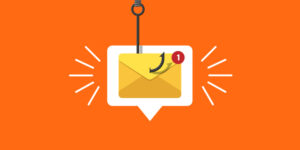
Organizations are suffering from data breaches, as fraudulent messages containing “health advice” lure people into giving up personal information. It is essential to recognize and ignore these email messages to protect yourself against cybercrime.
The Impact of Social Media on Company’s Cybersecurity
Nowadays, social media has become an integral part of people’s daily lives. Employees, in particular, are drawn to social media platforms as they try to achieve a work-life balance. However, it is crucial to know when to draw the line with the use of personal versus professional social media accounts to avoid security breaches.
Personal social media accounts serve as a primary communication channel among individuals. Constant visits to these applications keep us “socially” active. Businesses have opted to channel their brands and marketing strategies online through their customized professional social media accounts with the hopes of instantly reaching a much larger audience. Among the challenges here is the blurring line between professional and private lives. Employees might air comments and opinions reaching the public sphere, but these statements are at risk of giving the impression that they represent the company. Blurting out even a short, offensive remark can pose serious consequences. Accounts meant for professional use must be carefully managed if the posts are meant to advertise company branding, increase client engagement, and promote customer service.
Why is this important for small businesses? Keeping active on social media to operate a small business or a startup indicates social presence while giving the business its unique identity. Having an account for business use merges the advantages of having an instant promotional platform and a client management system. Regularly producing engaging contents and content marketing in your area of expertise boosts your business identity and undoubtedly widens connections. However, sharing offensive tweets and posts could spell disaster to your business.
The Cyber Threats
When dealing with personal social media accounts, it is best to avoid using business or company-owned devices. These platforms are susceptible to malware attacks, which are very common among social networking sites. Malware links lead the “unsuspecting you” to malicious websites, and suddenly you will notice an abnormality in your disk space, abnormal changes in your browser’s homepage, and unexplained increases in your system’s internet activity.
Phishing threats on social networks appear to impersonate a brand to trick you into entering login information. It can be a request from a bank or a link to download an attachment. A phishing attack is often used to steal login credentials, confidential information, and credit card information. Link manipulation is an example where links that spoof legitimate web addresses normally appear in an attempt to obtain that sensitive information.
Ransomware is malicious software that blocks or encrypts a user’s computer data, leaving you without access to your documents and other stored information in your computer. The attacker demands a ransom to regain access. Ransomware is all over the internet, and cybercriminals can choose targets. They tend to go after those organizations that can pay them quickly, such as banks, government agencies, and medical facilities.
Top Data Breaches
Among the top costly phishing attacks to date involve Facebook and Google, where they were scammed for over $100 million between 2013 and 2015. A hacker sent fake invoices impersonating a vendor. Xoom Corporation, an electronic funds transfer provider, also lost $31 million due to business email compromise because of employee impersonation conveyed through company.
If you are ready to do what it takes to protect your business, and your client’s data, contact us.
If you aren’t ready yet, but want to stay up to date on the latest technology information, then please follow our LinkedIn.



